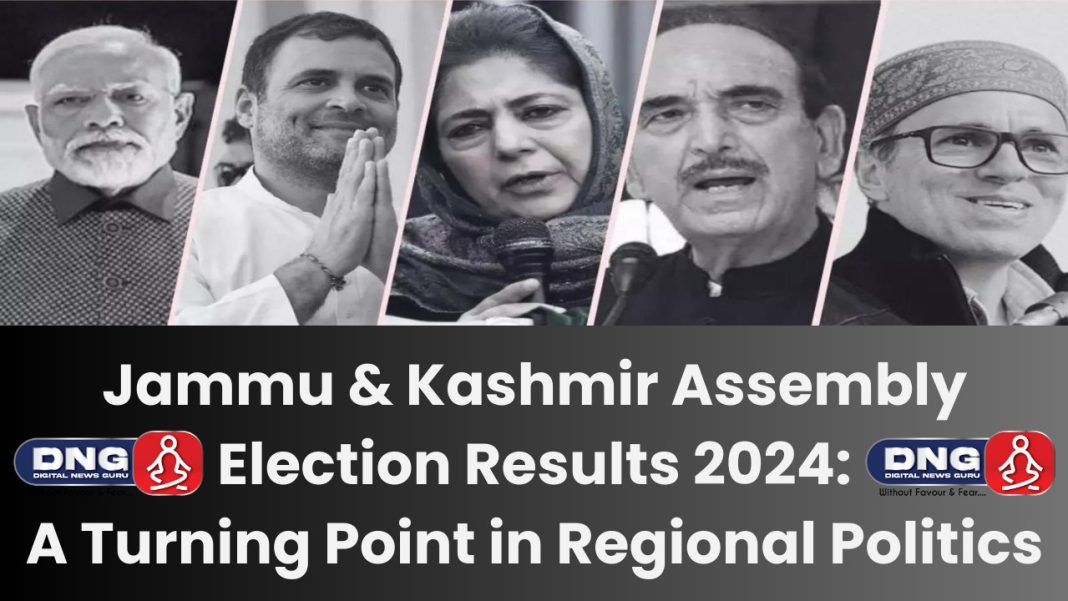DIGITAL NEWS GURU JAMMU & KASHMIR DESK:
Jammu & Kashmir Assembly Election Results 2024: A Turning Point in Regional Politics
The 2024 Jammu & Kashmir Assembly Elections have captured national attention, marking a critical juncture in the region’s political landscape.
These elections, the first since the abrogation of Article 370 in August 2019, are significant as they set the stage for the region’s governance after years of uncertainty and changes in its constitutional status. The results, announced today, suggest a complex political scenario with no clear winner, resulting in a hung assembly.
The Political Background
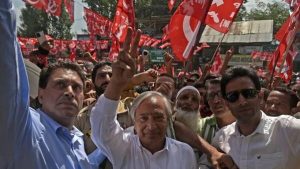
The Jammu & Kashmir elections come after a prolonged period of political instability. Following the revocation of Article 370, which granted special status to the region, Jammu & Kashmir was bifurcated into two union territories: Jammu & Kashmir (with its own legislature) and Ladakh (without a legislature).
This restructuring was met with widespread protests in the Kashmir Valley and caused significant political upheaval. The 2024 elections are the first since this momentous decision and carry immense symbolic and practical weight for the future governance of the region.
Before the abrogation, Jammu & Kashmir had been governed by a coalition of parties, with the People’s Democratic Party (PDP) and the Bharatiya Janata Party (BJP) forming an alliance from 2015 to 2018. However, this coalition ended in political turmoil, leading to Governor’s rule and, later, the direct control of the Union Government through the Lieutenant Governor.
Major Players and Key Contests
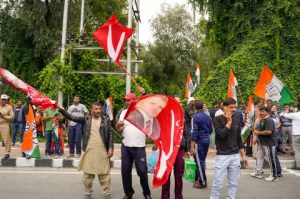
The 2024 elections have seen fierce competition among several key political entities:
- National Conference (NC)-Congress Alliance: The alliance between the National Conference (NC), led by Farooq Abdullah, and the Indian National Congress, led by Mallikarjun Kharge, emerged as one of the strongest contenders. With their stronghold in the Kashmir Valley, the NC and Congress capitalized on voter sentiment for restoring statehood and reversing the changes made in 2019.
- Bharatiya Janata Party (BJP): The BJP, under the leadership of Prime Minister Narendra Modi and Amit Shah, sought to make inroads into the Kashmir Valley while retaining dominance in the Jammu region. The party campaigned heavily on the developmental work undertaken since 2019 and its promise of security and economic stability. However, it faced stiff competition from the traditional parties in Kashmir.
- People’s Democratic Party (PDP): The PDP, led by Mehbooba Mufti, has struggled to regain its foothold after losing much of its support base following the 2018 collapse of its coalition with the BJP. Mufti’s stance on restoring Article 370 resonated with many voters in the Valley, but the party faced challenges in maintaining its influence amid the resurgence of the NC and Congress alliance.
- New Parties and Independent Candidates: Several smaller regional parties and independent candidates also entered the fray, aiming to fill the political vacuum created by the reorganization of the state. These groups, while lacking the resources of the bigger players, hoped to sway disillusioned voters.
Election Results: A Hung Assembly
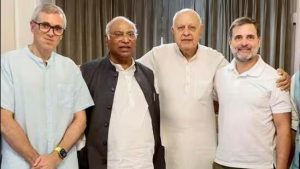
The results of the 2024 Jammu & Kashmir elections have led to a hung assembly, with no single party or alliance securing an outright majority. The NC-Congress alliance emerged as the largest bloc, expected to secure around 40-48 seats in the 90-member assembly. However, this is short of the 46 seats required for a majority, leaving the alliance in a position where it must seek support from smaller parties or independent candidates to form a government.
The BJP, despite its strong presence in the Jammu region, is expected to secure around 27-32 seats. While this is a significant showing, it too falls short of a majority, and the party’s strategy of expanding its footprint in the Valley has not yielded the desired results. The BJP will likely aim to play a key role in forming a government by negotiating with independents or smaller parties.
The PDP, once a dominant player, has been reduced to a marginal role, with predictions suggesting that it will win only a handful of seats. This reflects the party’s decline since its break with the BJP and the challenges it has faced in rebuilding its voter base.
Significance of the Results
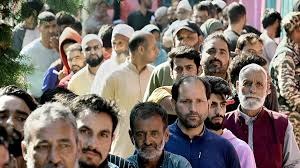
The outcome of the Jammu & Kashmir elections is significant for several reasons. Firstly, it will shape the governance of a region that has seen considerable changes in its constitutional and political status over the past five years. The election results also reflect the deep-rooted political divisions between Jammu and Kashmir, with the BJP dominating the Hindu-majority Jammu region while the NC and Congress remain popular in the Muslim-majority Kashmir Valley.
Secondly, the results will influence the broader debate over Article 370 and the future of Jammu & Kashmir’s statehood. While the BJP has remained firm on its stance of retaining the current status, the NC-Congress alliance has promised to push for the restoration of full statehood and greater autonomy.
Lastly, these elections will have national implications, as they come in the lead-up to the 2024 Lok Sabha elections. The BJP’s performance in Jammu & Kashmir will be closely scrutinized as a barometer of its popularity, particularly in a region where it has faced challenges in expanding its influence.
In conclusion, the 2024 Jammu & Kashmir election results mark a pivotal moment in the region’s political trajectory. With a hung assembly, the process of government formation is likely to be complex, and the political landscape of Jammu & Kashmir will remain dynamic in the coming months.
YOU MAYALSO READ: Indian Air Force Day 2024: Theme, Significance and Historical Journey



